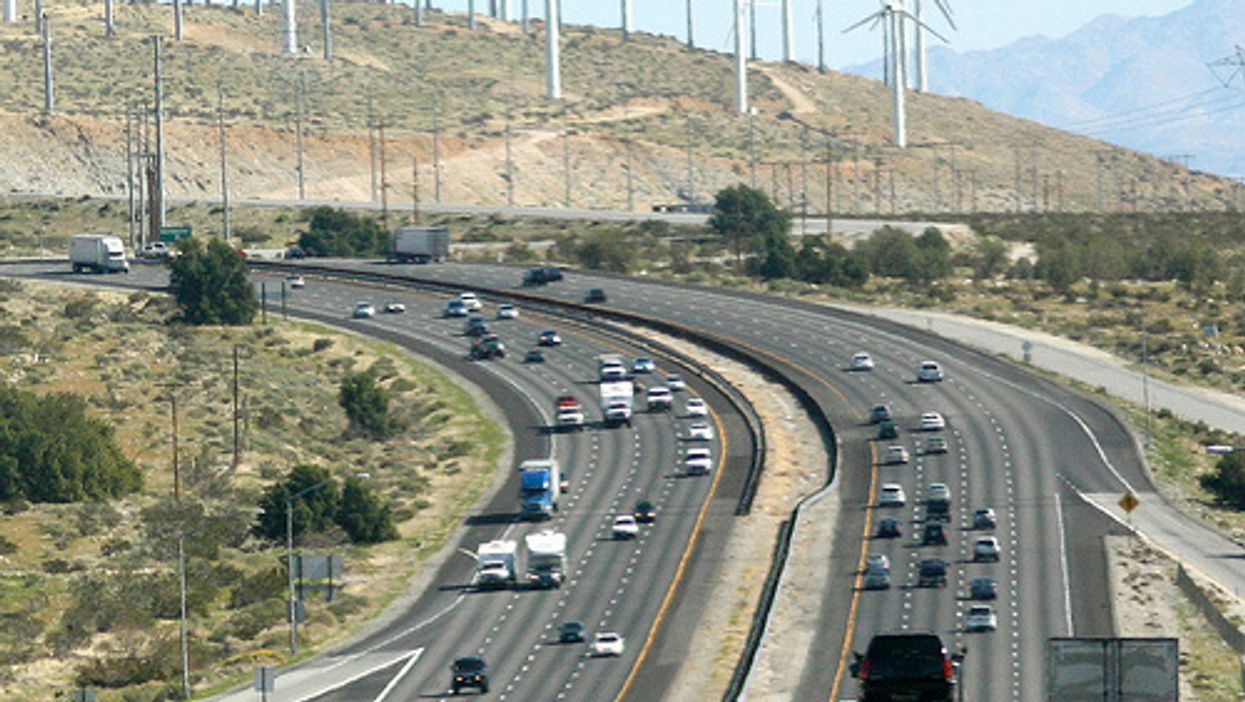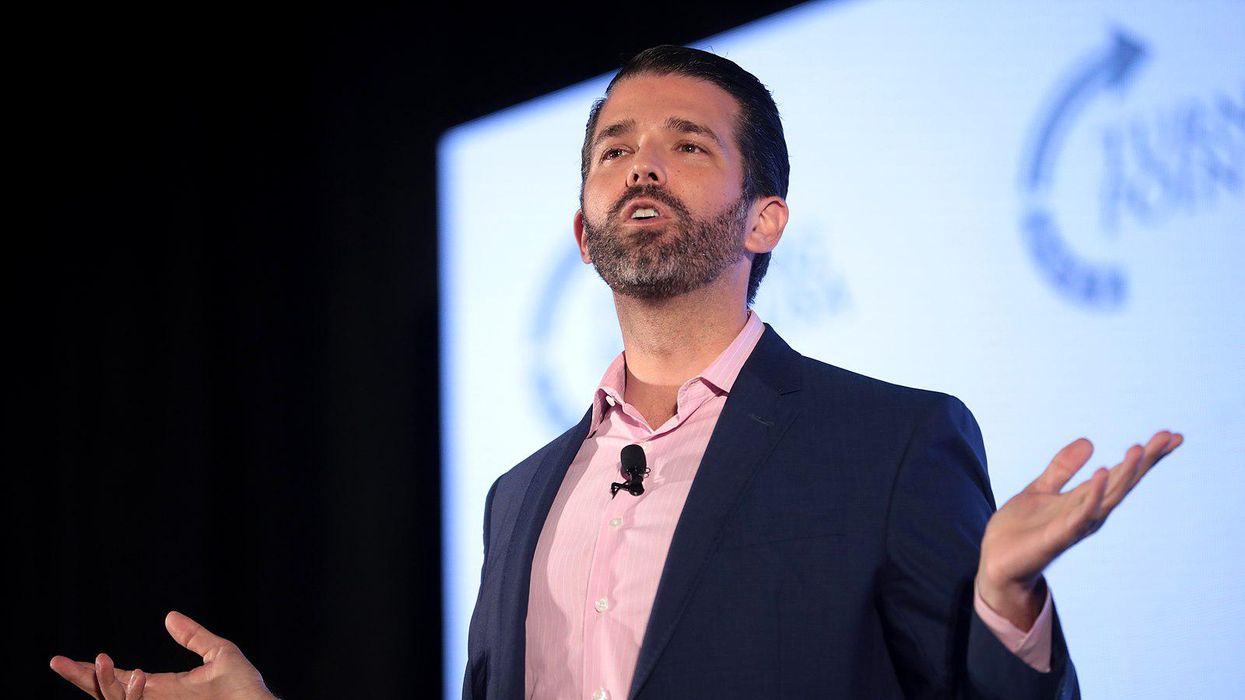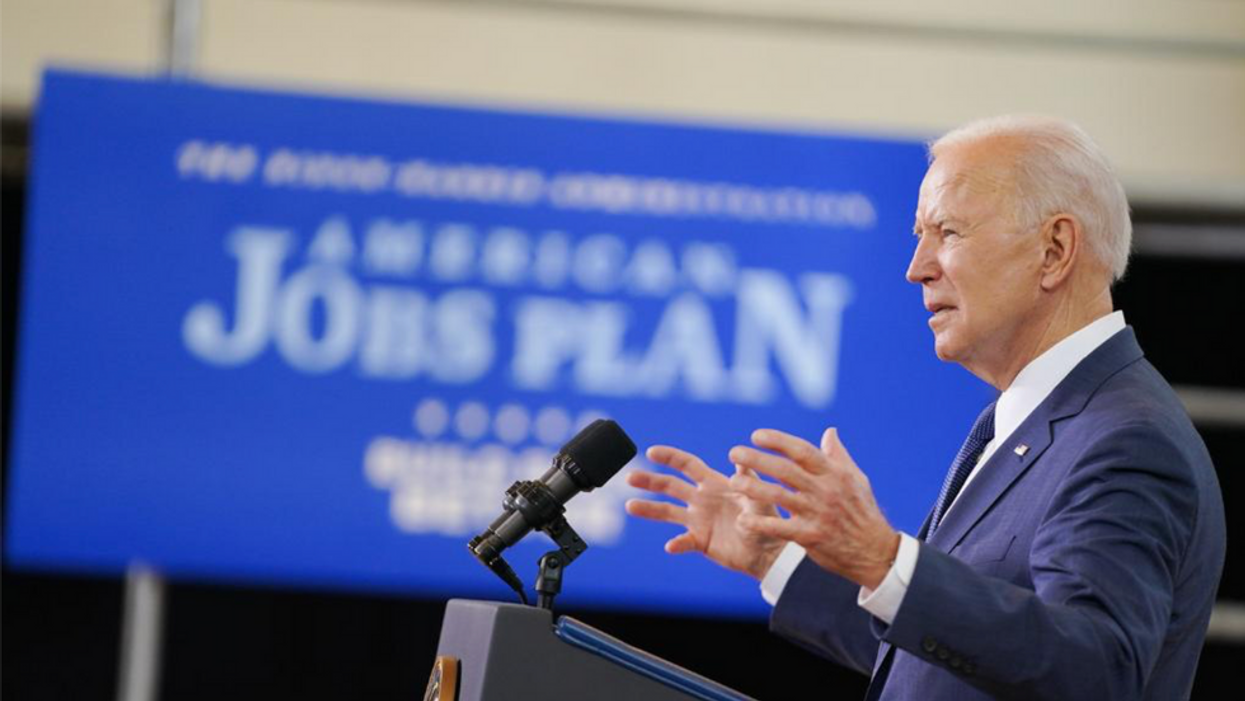Reprinted with permission from American Independent
A bipartisan infrastructure deal backed by President Joe Biden could be key in addressing climate change, one climate expert says, even if talks on the bill have been slowed by GOP pushback.
Evan Endres, climate and energy policy manager for The Nature Conservancy in Pennsylvania, told The American Independent Foundation on Monday that his state has a "complicated carbon puzzle that needs to be solved" and that a set of bipartisan infrastructure investments being considered by Congress could be one part of the solution.
Last month, Biden and a bipartisan group of senators agreed on a $579 billion framework for those investments in transportation, broadband, and water systems infrastructure. Although negotiations on the exact language of the bill have stalled, discussions are ongoing.
The framework includes funds to invest in electric vehicle infrastructure, electrify school and transit buses, upgrade the power grid, and clean up pollution.
Addressing those issues alone would be a boon to Pennsylvania, Endres said. "A lot of positive things are being discussed — concrete climate solutions that would create jobs and opportunity in Pennsylvania," he said.
Electrification of trucks and "heavy duty equipment," for instance, would jumpstart the state's economy directly, he explained.
"Mack Trucks, an American stalwart brand, makes an electric truck right here in Pennsylvania, at the Lehigh Valley Operations in Macungie ... heavy duty electric trucks you might see in a municipal trash fleet," he said. "A lot of the support for heavy duty electrification of equipment speaks directly to a brand that's part of the heart and soul of Pennsylvania."
He also noted that investments in battery and storage capacity could benefit the state. "We're a major exporter of electricity to other states," Endres said. "The more we can improve storage, the more we can export renewable energy."
As of now, the state is not only emitting greenhouse gases at home — it is also sending it out to other states.
"We're fifth in the nation for carbon emissions, we're a major exporter of energy to most states in the mid-Atlantic. We're the second largest net exporter of electricity behind Texas," he said. "Not only are we a large carbon emitter, but we're exporting that carbon-intensive electricity to other states who are also working to solve the carbon problem, the climate problem."
Endres is similarly bullish on provisions to deploy renewable energy generation efforts on the same lands that were once used for coal mining.
"That's something that should excite Pennsylvanians, particularly communities close to those formerly mined lands," he said. "You're bringing a new economic stimulation, development to those same lands through renewable energy, solar energy. That's a great intersection for those areas."
With a bipartisan infrastructure package passed, he added, more jobs will follow. "That tech requires a lot of construction, jobs for pipefitters, electricians, building trades, laborers," he said.
Endres also flagged another area that could lead to a jobs boost: cleaning up abandoned oil and gas wells.
The state's fossil fuel legacy, he said, includes "an unfathomable number of abandoned oil and gas wells. It's not uncommon to hear of hunters in the woods in Pennsylvania stumbling on an open well emitting methane as a pollutant — maybe it was drilled 80 or 90 years ago and no one is responsible."
Pennsylvania's Department of Environmental Protection has documented about 9,000 of those orphaned wells — but estimates the number that need to be capped is in the hundreds of thousands.
"Going through, finding these things, capping them safely," Endres said, is "not only a climate solution but a big job that will require engineers, technicians, people who know how to work safely with open gas wells, people being out in the field to identify, tag them, and assess the priority."
He added, "It's a big problem and a climate liability. Methane is a far more potent greenhouse gas than just carbon emission."
In all, the bipartisan package is a series of "really great first steps" and some "really great second steps," but ones that need to be hurried along soon.
"There's a lot of promising change happening. What we need is the kind of policy and investments that put a little gasoline on that fire of change," he concluded, before adding jokingly, "...Or flip the switch on the solar panels."
Published with permission of The American Independent Foundation.




